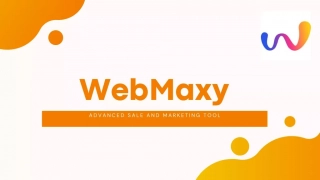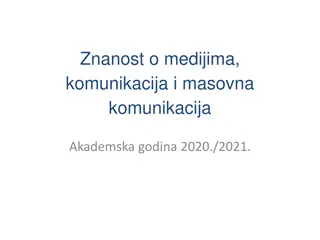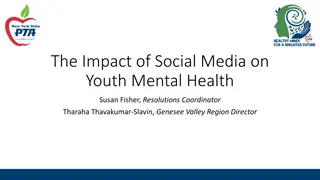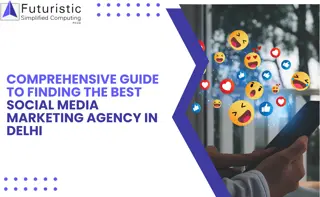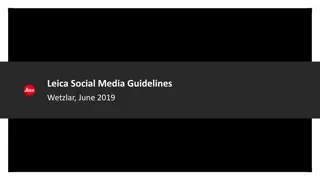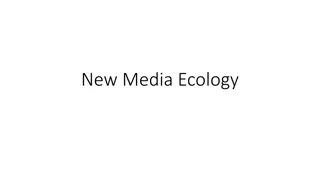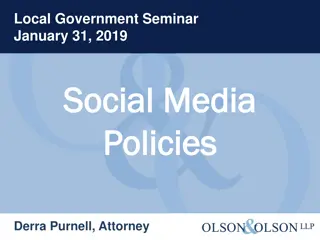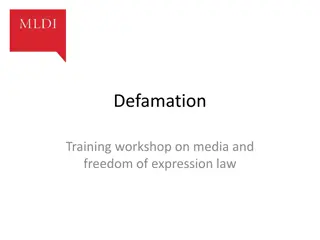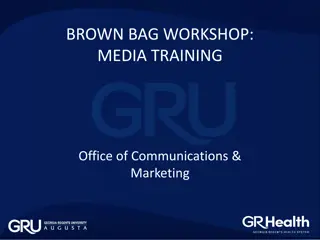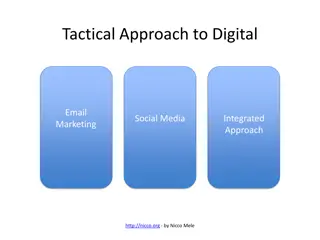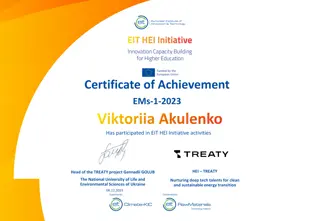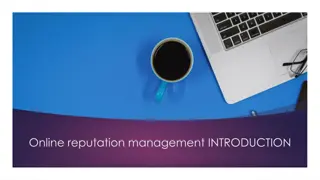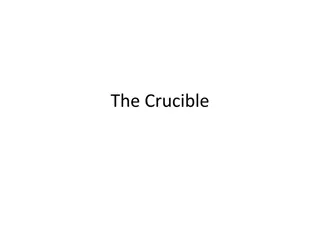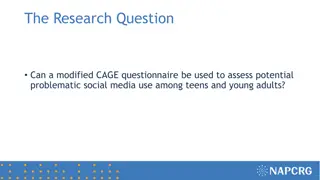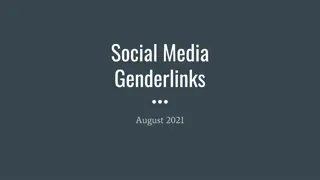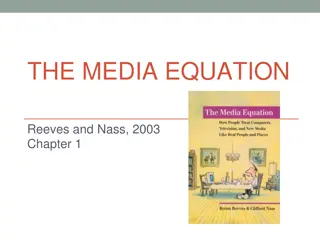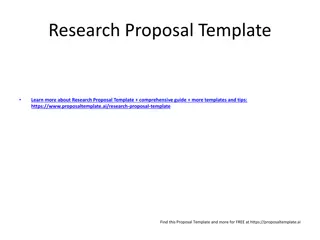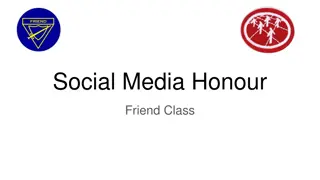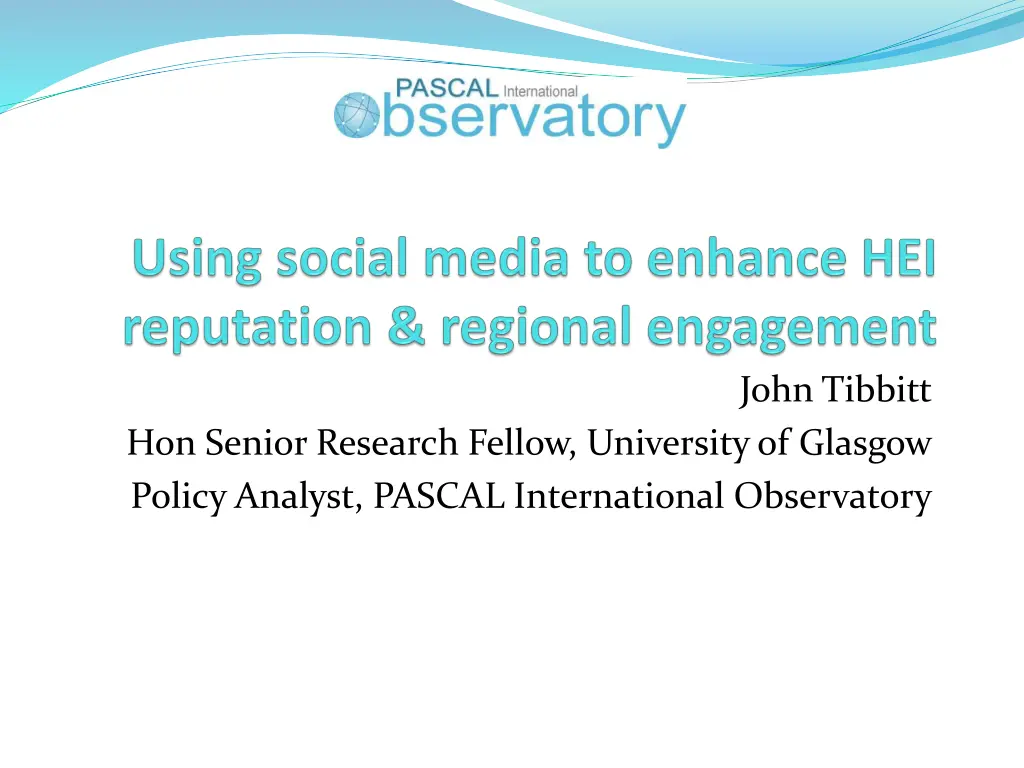
Effective Strategies and Impact Assessment in Social Media Utilization
Explore the effective use of social media in academic and research settings, focusing on creating awareness, engaging with stakeholders, and assessing impact. Learn how to develop a strategy, create quality content, and measure engagement on platforms like Twitter and Facebook.
Uploaded on | 1 Views
Download Presentation

Please find below an Image/Link to download the presentation.
The content on the website is provided AS IS for your information and personal use only. It may not be sold, licensed, or shared on other websites without obtaining consent from the author. If you encounter any issues during the download, it is possible that the publisher has removed the file from their server.
You are allowed to download the files provided on this website for personal or commercial use, subject to the condition that they are used lawfully. All files are the property of their respective owners.
The content on the website is provided AS IS for your information and personal use only. It may not be sold, licensed, or shared on other websites without obtaining consent from the author.
E N D
Presentation Transcript
John Tibbitt Hon Senior Research Fellow, University of Glasgow Policy Analyst, PASCAL International Observatory
Aims What can social media deliver in this context? How do social media fit alongside more conventional approaches? How to use social media effectively? How to assess impact? Promoting the work of both the HE institution and its staff
Social media platforms Facebook Twitter Linkedin Youtube Blogs Wordpress Blogspot Academia Web forums E-newspapers
Why use social media? HEIs Creating awareness breaking news and commentary Engaging with partners, customers & other stakeholders responding to customer requests Monitoring learning about users response to HEI provision Learning from others sharing good practice Rapid response to emerging issues Market testing Extending access and participation
Why use social media? Academic centres and staff Creating awareness of work Targeting distribution of news Monitoring a field of knowledge Sharing ideas and work in progress Network building Engaging with audiences outside instituions The public academic
Effective use Develop a strategy Develop a style Quality content Link to other media Get organised
Assessing Impact Twitter Numbers/profiles of followers Retweets /mentions Direct messages Lists Facebook Numbers/profiles of fans Reach Engagement
More Social media for in business, see for example McKinsey Quarterly http://www.mckinseyquarterly.com/Marketing/Digital _Marketing/Demystifying_social_media_2958 Guide to social mobility for teaching research and impact, see LSE blog http://blogs.lse.ac.uk/impactofsocialsciences/2011/09/ 29/twitter-guide/
Thank you for listening Twitter joke! Tweet and Retweetare in a boat. Tweet falls out. Who is left? Retweet. John.Tibbitt@gla.ac.uk
PASCAL on-line Website: www.pascalobservatory.org Twitter: www.twitter.com/obspascal Facebook: www.facebook.com/Pascalobservatory E-papers: OBSERVATIONS: www.bit.ly/qOMppe OBSERVATIONS Weekend: www.bit.ly/pyJXUq

